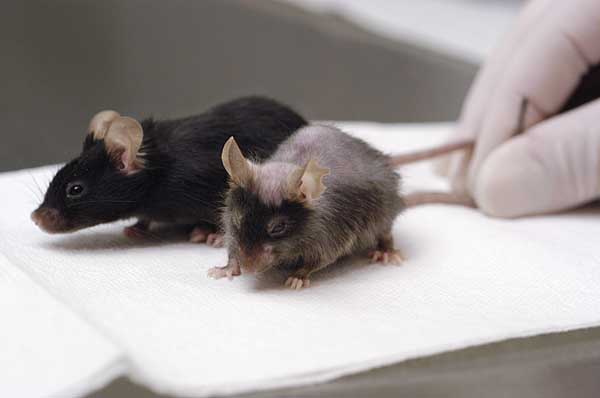Note to the reader: I published this piece recently elsewhere, but since it probably won’t be seen by many people, I’m publishing it here.
Moderate alcohol consumption is associated with better health
Moderate alcohol consumption is associated with better health and lower mortality, particularly with regard to cardiovascular disease. Moderate drinkers, those who consume 1 to 2 drinks (14 to 28 grams of ethanol) daily have about a 25% lower mortality rate than non-drinkers.[1] While this relationship shows association only, a number of mechanisms have been postulated as to why alcohol might benefit cardiovascular health, such as better insulin sensitivity, lower platelet adhesion, lower levels of PAI-1, and higher HDL cholesterol.[2] The protection of alcohol against cardiovascular disease is mediated in part by an inhibition of atherogenesis.[3]
Moderate alcohol consumption also shows an association with lower risk of Alzheimer’s disease and vascular dementia, with light to moderate drinking associated with a 42% lower risk of any dementia, and a 71% lower risk of vascular dementia.[4]
Women who consumed more than 3 drinks weekly had a 52% lower risk of rheumatoid arthritis.[5]
Alcohol consumption may protect against Parkinson’s disease, with ever-drinkers having about a 40% lower risk compared to never-drinkers.[6]
Moderate alcohol consumption is associated with a 30% lower risk of type 2 diabetes.[7]
Current alcohol consumption is associated with a lower risk of incident amyotrophic lateral sclerosis.[8]
All of these diseases for which alcohol is associated with lower risk are diseases of aging.
Alcohol (ethanol) is known to be an effective bactericidal agent, at least at high concentrations, and this may be related to its presumptive health benefits.
Microorganisms may be a cause of the diseases of aging
In recent years, it’s been demonstrated that bacteria are present in the blood of a large fraction of otherwise healthy people.[9] These bacteria include species known to cause infections. A diverse microbiome exists in the blood of healthy blood donors, most of it residing in the buffy coat fraction, which consists of white blood cells.[10]
These bacteria, and other microorganisms, may be implicated in chronic diseases, which are outside of what are normally considered infections, whether acute or chronic.[11] They may be wholly or partially causative of cardiovascular disease, Alzheimer’s, Parkinson’s, type 2 diabetes, and rheumatoid arthritis.
Fungal elements have been found in the brains of Alzheimer’s patients; species included Candida species, Malasezzia species, and Saccharomyces cerevisiae, among others.[12] Fungal infection may be involved in causing amyotrophic lateral sclerosis as well.[13]
Bacterial components have major involvement in rheumatoid arthritis, and recurrent infections are a risk for that disease.[14]
Higher levels of bacterial lipopolysaccharides (LPS) are found in type 2 diabetes.[15]
Periodontal disease, in which bacteria may be shed into the bloodstream, is associated with atherosclerosis.[16] Infection with Chlamydia pneumoniae may contribute to atherosclerosis.[17]
Any agent or intervention that kills or inhibits these bacteria and/or fungi may also prevent these diseases.
Alcohol, even at very low concentrations, inhibits microorganisms
Alcohol is known to be a powerful antiseptic, but at concentrations much higher than can be obtained through moderate drinking. However, even very low concentrations of alcohol (ethanol) can inhibit certain bacteria, for example the pathogen Staphylococcus aureus.[18] Very low concentrations of ethanol (0.1%) inhibit bacterial utilization of specific amino acids, such as glutamate, proline, and ornithine, and also affects the cell walls of E. coli. At a concentration of 0.1% (vol/vol), S. aureus growth is significantly inhibited. Concentrations of ethanol as low as 0.2% prevents fungi from growing in food.[19]
A concentration of 0.1% ethanol is similar to the blood alcohol concentration after ingesting two standard drinks, or ~30 g ethanol, depending on the body weight of the person drinking.[20]
Someone who drank moderate amounts of alcohol might be ingesting enough to inhibit or kill bacteria and/or in the blood, and therefore help to prevent the degenerative diseases that have a connection to bacteria.
[1] Ronksley, Paul E., et al. “Association of alcohol consumption with selected cardiovascular disease outcomes: a systematic review and meta-analysis.” BMJ 342 (2011): d671.
[2] Djoussé, Luc, et al. “Alcohol consumption and risk of cardiovascular disease and death in women: potential mediating mechanisms.” Circulation 120.3 (2009): 237-244.
[3] Kiechl, Stefan, et al. “Alcohol consumption and atherosclerosis: what is the relation?: prospective results from the Bruneck Study.” Stroke 29.5 (1998): 900-907.
[4] Letenneur, Luc. “Risk of dementia and alcohol and wine consumption: a review of recent results.” Biological research37.2 (2004): 189-193.
[5] Di Giuseppe, Daniela, et al. “Long term alcohol intake and risk of rheumatoid arthritis in women: a population based cohort study.” Bmj 345 (2012): e4230.
[6] Ragonese, P., et al. “A case-control study on cigarette, alcohol, and coffee consumption preceding Parkinson’s disease.” Neuroepidemiology 22.5 (2003): 297-304.
[7] Koppes, Lando LJ, et al. “Moderate alcohol consumption lowers the risk of type 2 diabetes: a meta-analysis of prospective observational studies.” Diabetes care 28.3 (2005): 719-725.
[8] De Jong, Sonja W., et al. “Smoking, alcohol consumption, and the risk of amyotrophic lateral sclerosis: a population-based study.” American journal of epidemiology 176.3 (2012): 233-239.
[9] Damgaard, Christian, et al. “Viable bacteria associated with red blood cells and plasma in freshly drawn blood donations.” PLoS One 10.3 (2015): e0120826.
[10] Païssé, Sandrine, et al. “Comprehensive description of blood microbiome from healthy donors assessed by 16S targeted metagenomic sequencing.” Transfusion 56.5 (2016): 1138-1147.
[11] Kell, Douglas B., and Etheresia Pretorius. “No effects without causes: the Iron Dysregulation and Dormant Microbes hypothesis for chronic, inflammatory diseases.” Biological Reviews (2018).
[12] Pisa, Diana, et al. “Different brain regions are infected with fungi in Alzheimer’s disease.” Scientific reports 5 (2015): 15015.
[13] Alonso, Ruth, et al. “Evidence for fungal infection in cerebrospinal fluid and brain tissue from patients with amyotrophic lateral sclerosis.” International journal of biological sciences 11.5 (2015): 546.
[14] Pretorius, Etheresia, et al. “Major involvement of bacterial components in rheumatoid arthritis and its accompanying oxidative stress, systemic inflammation and hypercoagulability.” Experimental Biology and Medicine 242.4 (2017): 355-373.
[15] Jayashree, B., et al. “Increased circulatory levels of lipopolysaccharide (LPS) and zonulin signify novel biomarkers of proinflammation in patients with type 2 diabetes.” Molecular and cellular biochemistry 388.1-2 (2014): 203-210.
[16] Kebschull, áM, R. T. Demmer, and P. N. Papapanou. ““Gum bug, leave my heart alone!”—epidemiologic and mechanistic evidence linking periodontal infections and atherosclerosis.” Journal of dental research 89.9 (2010): 879-902.
[17] Filardo, Simone, et al. “Chlamydia pneumoniae-mediated inflammation in atherosclerosis: a meta-analysis.” Mediators of inflammation 2015 (2015).
[18] Very Low Ethanol Concentrations Affect the Viability and Growth Recovery in Post-Stationary-Phase Staphylococcus aureus Populations
[19] Dao, Thien, and Philippe Dantigny. “Control of food spoilage fungi by ethanol.” Food Control 22.3-4 (2011): 360-368.
[20] https://awareawakealive.org/educate/blood-alcohol-content














15 Comments
PD this is an interesting hypothesis and a useful one for further checking out. Certainly I enjoy a glass of two of red wine occasionally.
However I wonder if you have any comments on the recent repprt of the BBC which claims that alcohol consumption of even ‘five to 10 drinks a week’ shortens life span because of CVD etc
https://www.bbc.com/news/health-43738644
Yes, I do have a comment. The report – here’s the original study – found that the lowest risk was at 100 grams of alcohol a week. In the U.S. one drink is 14 grams of alcohol, so 100 grams is about 7 drinks, or 1 a day. Previous studies have found lowest risk compared to non-drinking at 1-2 drinks a day, so this study is right in line with that.
Thanks PD.. I already suspected that the BBC report was inaccurate.But you have gone to the research article source for the BBC’s own report.
And it does not support the BBC’s conclusions.
In other words dumb & inaccurate reporting by the Beeb..
Saying bacteria is at the root of aging is really saying that aging is due to nothing more than immuno-senescence. If this it true, then curing aging would involve little more than regenerating the thymus gland (which has been done) and rejuvenation the lymphatic system (which has not yet been done).
That’s partly true, however, some people get diseases and others don’t, not necessarily at very old age, such as coronary heart disease or rheumatoid arthritis, both of which may be partly caused by bacteria. In fact, iron dysregulation is likely more important than immune function, since bacteria and fungi need to acquire iron from their hosts to grow and reproduce. See this article: Kell, Douglas B., and Etheresia Pretorius. “No effects without causes: the Iron Dysregulation and Dormant Microbes hypothesis for chronic, inflammatory diseases.” Biological Reviews (2018).
Rheumatoid arthritis, for example, seems to be a autoimmune disorder similar to rheumatic fever, in which antibodies made against a bacterium cross react against some of the bodies own structure, a case of molecular mimicry. In rheumatic fever, antibodies made against Streptococcus pyogenes from strep throat cause heart damage; in RA, antibodies made against the bacterium Proteus (usually P. mirabilis) cross react with connective tissue. In other diseases, the damage caused by microorganisms may be more direct, such as the case of fungi in Alzheimer’s disease. This is all a very new and exciting field.
Possibly what’s happening in many cases is that bacteria are dormant, because immune surveillance keeps them that way. Most healthy people may have dormant bacteria in places normally deemed sterile, like the blood. Something allows the bacteria to grow, and that something is free iron. Then the bacteria cause disease. That’s the theory.
Iron. Mercury, and other heavy metals.
No, microorganisms don’t need mercury.
Indeed, but I might offer that in the case of Alzheimer’s and yeast, perhaps it’s the degeneration of the brain tissues and the overall failure of the immune system that comprises the disease which then allows the fungi to propagate.
Yes, could very well be. There’s much that’s unknown at this point about microorganisms and how causative they are.
Abelard,
Even if the Thymus can’t be regenerated with high reliability, it still may be possible to inject the necessary Thymus products such as Thymosin Alpha-1 which is available now. If we can confirm what is needed, then replacing the Thymus outputs may be a higher reliability approach since one would not have to guess or confirm that the regeneration worked.
Interesting article, I have to ask, what are your thoughts on alcohol based mouthwashes? I was using it for awhile under the assumption it would be beneficial but have read some negative/mixed things on them so I stopped.
I can’t say I’ve thought much about them. If they prevent or treat periodontitis, then they would be beneficial and stop bacteria from entering the blood. However, the gut appears to be the major source of bacteria, so mouthwashes don’t affect that. I can’t say I see much in the way of downside to an alcohol mouthwash, no more so than brushing your teeth.
I believe mouthwashes have been associated with higher oral cancer risk. A possible explanation is that they indiscriminately kill off all bacteria in your mouth, including some that are beneficial. In this way they may be detrimental, much as antibiotics can have a detrimental impact on your gut health (since they destroy good as well as bad bacteria). I would avoid mouthwashes.
Ethanol is a small molecule with a hydroxy-group – it fits in a lot of receptors a bit, adding “noise” in neuronal and hormonal signalling.
Perhaps this causes a compensatory increased immune response of some kind – activating an increased “search” for pathogens due to activating some kind of immune sensor for pathogens?
Alcohol reduces anxiety, worries etc. – it relaxes (by inhibiting higher-order cognitive processes). This reduces stress, and this lowers cortisol. Stress and increased, chronic cortisol levels put the body in an “emergency mode” (“fight or flight” response) that down-regulates digestion and immune system activity. Alcohol could signal/cause a bodily “I am safe now” – response, and therefore increase immune system effectiveness.
Opioids or marijuana and tranquilizers (“mother’s little helpers”) seem to work comparably in terms of reducing stress response/anxiety; would users of such drugs also show the same lowered mortality due to this effect?
Our immune systems are almost magical – they fend off continuous and always-changing microbiological attack, while somehow usually not targeting our own body structures. It seems unlikely that the underlying detection mechanism is perfect. Some people get an infection, others not. Sexual reproduction mixes our immune system specifics (mutations may help as well) so our immune systems are kept diverse among people, preventing an uniformity that would allow pathogens (which have an intergenerational distance measured in minutes and hours instead of decades like humans) to easily adapt to our immune systems and kill all of us off easily.
That means that if someone gets sick or even killed from an infection is fundamentally down to chance.
It also means that some people’s immune system fail to detect certain pathogens that are easily detected and removed in other people;
a persistent, low-grade infection with pathogens seems to exist in some individuals, due their immune systems’ inability to detect/remove them.
What if some of our food and cultural habits are associated with improving health and life span due to activating or otherwise improving our immune response?
Consider fever. It greatly improves immune system effectivity. Cross-species fever response is associated with much lower mortality from and clearing of infections.
Humans, at least thermally, induce fever artificially – sauna.
Is this not just done for comfort, but to more effectively clean the body from lingering, otherwise difficult to remove microbiological attack?
Plants are also under attack from fungi, bacteria and viruses; they have an immune system, too.
It can be responsive as well, but relies more on passive chemical compounds in the plant (no complex adaptive change of immune system factors like in mammals).
This works very well, as plants, when alive, as they are clearly not overwhelmed by microbiological attack.
What if a lot of plants and spices are not eaten for their taste, but because they improve immune response?
Before refrigeration, hot-climated countries used spices extensively to delay spoiling (=microbiological decomposition) of food – in other words, those spices kill or at least inhibit pathogens.
Plants evolved a wide spectrum of compounds to deal with pathogens.
If we eat certain plants and spices, would those compounds then kill some of our own pathogen load that evades our immune systems?
Tea from Cistus plants contains chemicals that bind to some viruses in humans – it indicates human immune systems those viruses and facilitate their removal from the body.
I often wonder why many vegetables still are in demand; they are not tasty or energy-dense; yet they are cultured and eaten in surprisingly high amounts.
Are people feeling better, or just survive better, because compounds from those vegetables, that protect the plants, also improve immunity in humans?
Recently I read a study about blueberries. They are associated with protection from dementia.
Scientists wondered why. It turned out the effect was largely due to a simple chemical the berries contained in quite high amounts – benzoic acid; researchers found that it crossed the blood-brain barrier, and hindered pathogens from surviving or spreading in the brain (this chemical is a commonly used food preservative having a bad reputation for being a “chemical” – outside blueberries, which are considered to be “natural”).
Onions, garlic etc. contain many chemicals that kill of certain bacteria, fungi and viruses; there are a great many studies on that.
We are part of and always exposed to a vast endogenous and external ecosystem of pathogens that constantly changes – to a degree most do not realize:
“Scientists have surmised there is a stream of viruses circling the planet, above the planet’s weather systems but below the level of airline travel. Very little is known about this realm, and that’s why the number of deposited viruses stunned the team in Spain. Each day, they calculated, some 800 million viruses cascade onto every square meter of the planet.
Most of the globe-trotting viruses are swept into the air by sea spray, and lesser numbers arrive in dust storms.”
https://www.nytimes.com/2018/04/13/science/virosphere-evolution.html
It seems to be a good idea to use every bit of support in terms of immunity that we can easily get;
through exercise, sauna etc.;
and we should consider that nutrition is not only about providing energy and building blocks for our bodies, but also modulates our immunity in complex and not yet understood ways and so influences our health and life expectancy. Some people may survive an epidemic just because of the kind of plant (or spice) they happen to be eating…
I have thought this to be true for a long time. I am a dental hygienist. Over the years I have noticed a correlation between people who drink and gum disease. People who drink alcohol seem to have a lower rate of gum disease, which in turn would make sense to have lower occurrence of cardiovascular disease. The alcohol is killing the bacteria of the mouth before it is even swallowed.